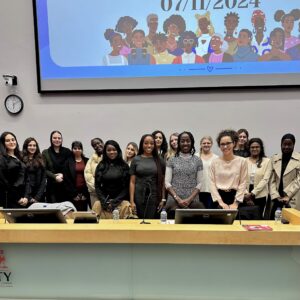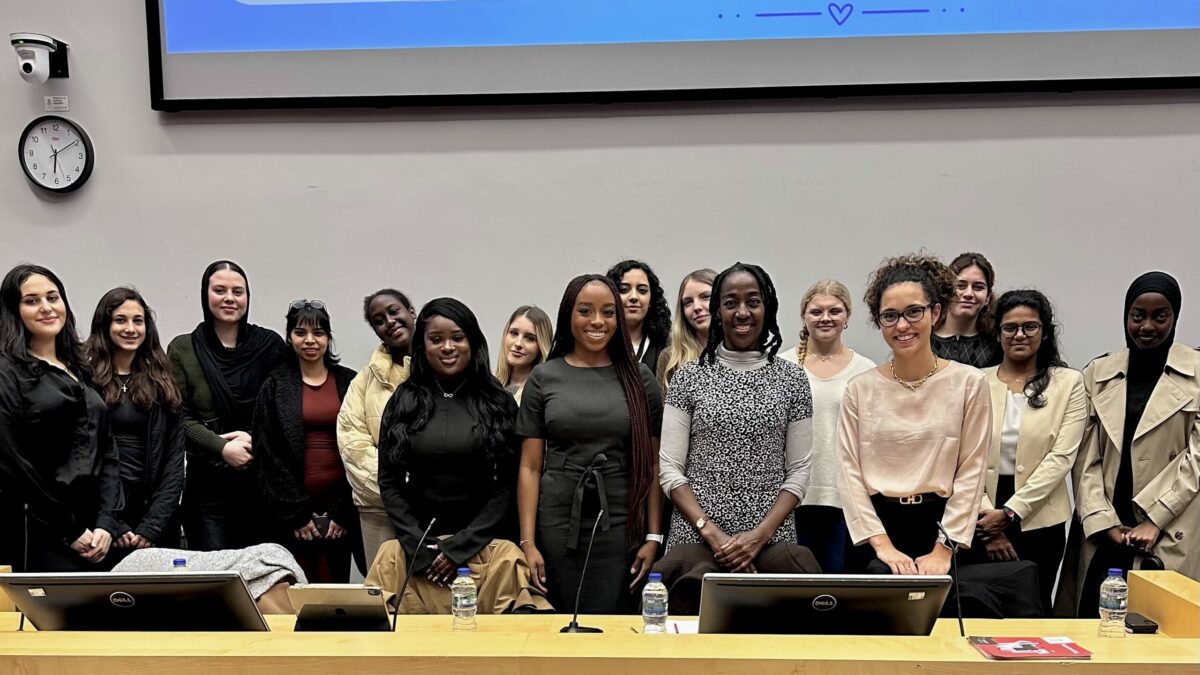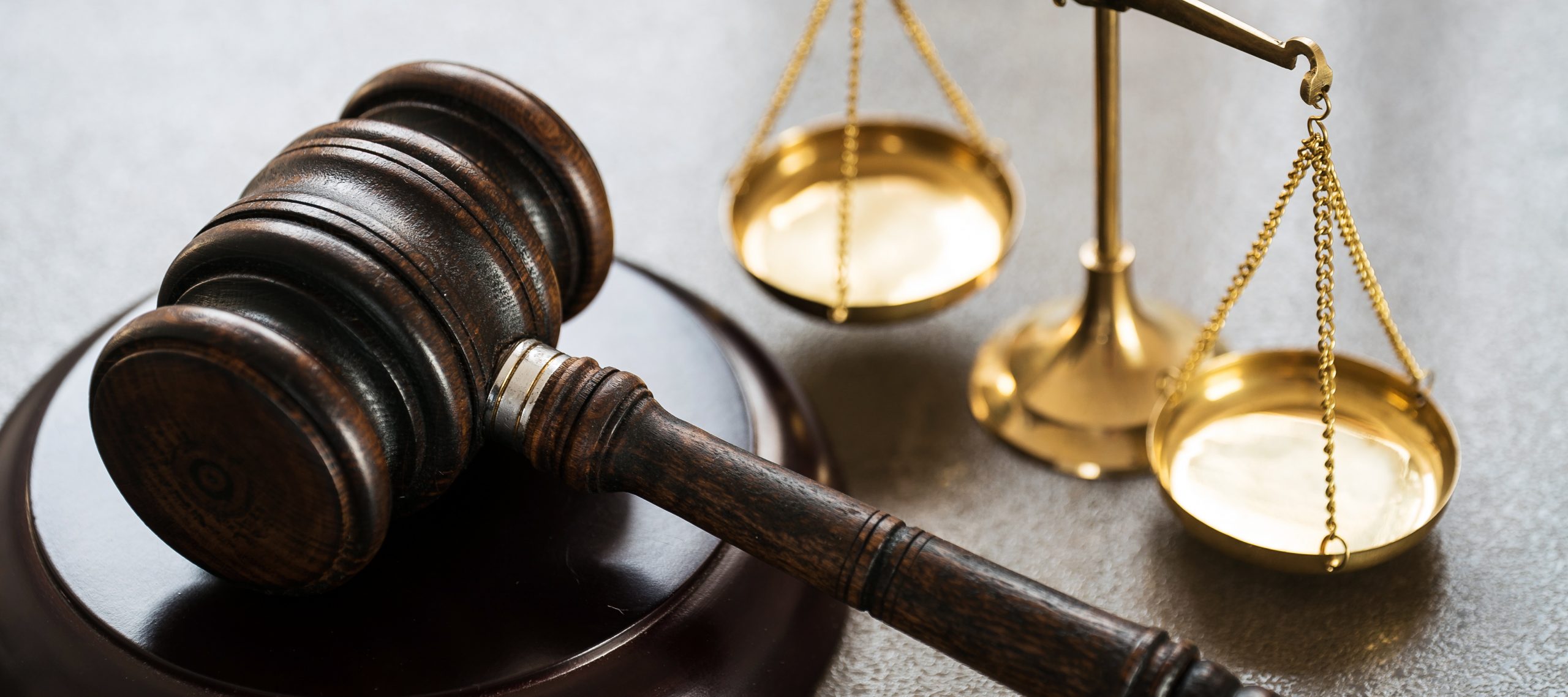
Interview with Liam Murray, Third-Seat Trainee Solicitor at Addleshaw Goddard
November 7, 2024
Ms Thandi and Others v Next Retail Ltd and Next Distribution Ltd 2024 (1302019/2018)
November 10, 2024By Abigail Wonga.
Reading time: four minutes
City St George’s Annual Event
Last year, I was a first-year student at City St George’s. I attended the Black Women in Law Event in 2023, detailing my perception of the event, the panellists and the (now) esteemed graduate and ex-president of the Women in Law Society, Rochelle Inbakumar. This year, I am a second-year student and once again attending this annual event, hosted by the Women in Law Society’s new committee, including: 
- Lucy Heap – President;
- Shagun Srivastava – Communications Officer;
- Pauline Cabaron – Events Officer; and
- Imani Sabir – Partnerships Officer (& Chair).
The Women in Law Society did an excellent job in highlighting events with diverse panellists from BAME backgrounds.
The panel consisted of:
- Angela Jackman KC – a partner at Irwin Mitchell;
- Christianah Omobosola Babajide – legal marketing expert and TSL’s very own Editor;
- Karen Manu – graduate recruitment assistant at Reed Smith; and
- Isabelle Sadler – associate at Squire Patton Boggs.
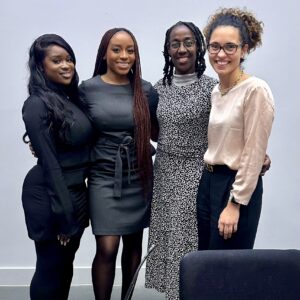
The event began with a thought-provoking question: “The theme of Black History Month this year is ‘Reclaiming Narratives.’ What does that mean to you?” For those of us of African descent, it’s essential to acknowledge the told, untold, and often misinterpreted stories within Black history, something which wasn’t taught to us at school. This theme resonated deeply with the panellists, who were of African-Caribbean and mixed descent, as they spoke to the unique dual burdens of being both Black and women.
Read this article on strategies for empowering black women in law: https://thestudentlawyer.com/2024/10/01/strategies-for-empowering-black-women-in-law/
In light of Kamala Harris’s recent loss to Donald Trump—a moment felt deeply by Black women worldwide who had hoped to see the first Black and South Asian female president—the timing of this event felt especially significant. The panellists shared powerful stories underscoring why it’s so crucial for Black women to reclaim and tell their own narratives, shaping their legacies on their own terms.
As the legal world continues to create initiatives for those of ethnic minority backgrounds and marginalised communities, the panellists of the individual firms explained what exactly firms, chambers and the legal community are doing to enhance diversity. This includes but is not limited to:
- pro bono work;
- open days targeted specifically to non-Russell group universities, LGBTQIA+ and neurodiverse students; and
- First Year Schemes targeted at those belonging to the BAME community or coming from a low socioeconomic background; and
- mentoring programmes.
According to the Harvard Business Review (2021), Black women encounter unique workplace challenges that limit their access to high-earning positions. One pervasive stereotype they face is the “Angry Black Woman” trope, which unfairly labels Black women as overly angry or hostile—an unfounded perception that impacts their professional growth. Although this study focuses on the American workplace, the impact of this stereotype is also evident in the UK. In fact, a survey by the SRA shows that Black solicitors make up only 3% of the profession. This stark underrepresentation highlights the persistent barriers to progress, despite many law firms pledging commitment to diversity and inclusion following the murder of George Floyd in 2020.
Read this article which touches upon how to build resilience in the face of adversity: https://thestudentlawyer.com/2024/04/21/building-resilience-in-the-face-of-adversity/
Being Black and Female: the Challenges
The panellists addressed some of the stereotypes Black women face in the legal profession, sharing insights into their personal journeys and the challenges they’ve overcome. Rather than dwelling on the negatives, they offered constructive advice on creating more inclusive spaces for aspiring Black lawyers, with a focus on ensuring that they won’t be the last to break through these barriers.
Read this article to find out why Black lawyers aren’t reaching partner level: https://thestudentlawyer.com/2024/10/24/why-arent-black-lawyers-becoming-partners/
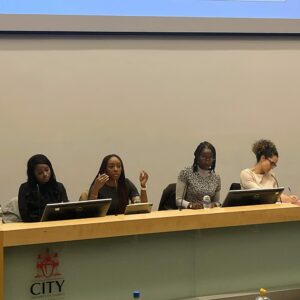
This led seamlessly into the penultimate question: “In your respective careers, where have you learned to tackle the challenges you’ve faced, and how did you overcome them?” While DE&I initiatives are being implemented, genuine acknowledgment and support for people from underrepresented backgrounds are still lacking. Karen Manu shared how she didn’t learn about the importance of a vacation scheme until her final year at university—a gap in knowledge that many students still face. Similarly, many undergraduates assume that a degree guarantees them a job, though this is no longer true due to the impacts of globalisation, technology and population.
Firms and universities should collaborate to support students from underrepresented backgrounds through career consultancy programs and similar initiatives. At City, I’m part of the Progression Pathways program, which specifically supports African-Caribbean students. With a 50% dropout rate among Black students at City, this program plays a crucial role in retaining Black talent and helping them complete their undergraduate degrees.
For law and non-law students looking to obtain experience (unpaid and paid), The Student Lawyer provides many resources to help you with making applications. This will be able to help you with developing your CV, personal brand and networking:
- https://thestudentlawyer.com/2024/09/06/life-after-uni-navigating-a-legal-career-as-law-graduate/
- https://thestudentlawyer.com/2024/05/22/how-to-find-legal-volunteer-opportunities-law-student-edition/
- https://thestudentlawyer.com/2024/05/22/why-aspiring-lawyers-should-volunteer-this-summer/
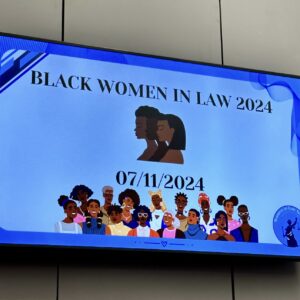
Summary
The advice given by the panellists was useful because it was based on their experiences and offered insights into how they would have handled anything differently in expressing themselves and embracing diversity throughout their careers. Owning your failures is part of building up your resilience and developing thick skin. Through this, you can learn what it is that you want and expect from your legal journey. Always remember that your journey is not for anyone else to define but yours and your narrative is not for anyone but you to claim.
